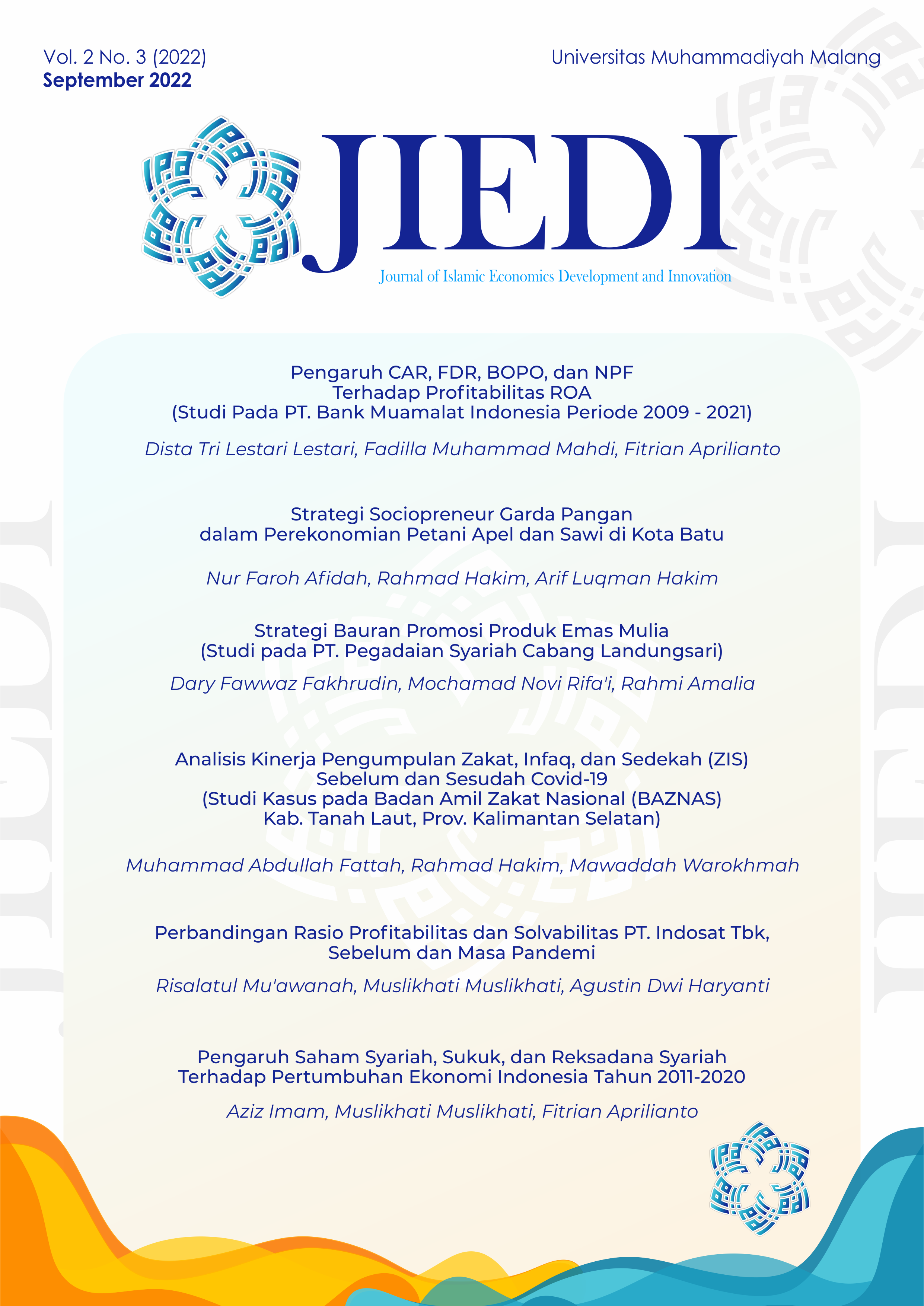Analisis Kinerja Pengumpulan Zakat, Infaq, dan Sedekah (ZIS) Sebelum dan Sesudah Covid-19
(Studi Kasus pada Badan Amil Zakat Nasional (BAZNAS) Kab. Tanah Laut, Prov. Kalimantan Selatan)
Keywords:
Fundraising, zakah, management, performanceAbstract
This study uses a qualitative research method with a case study research approach. The technique used in this research in processing the data obtained is descriptive qualitative method. Methods of data collection using the method of observation, interviews, and documentation. Data collection is carried out directly to the Badan Amil Zakat Nasional (BAZNAS) Kabupaten Tanah Laut. The results showed that the performance of Badan Amil Zakat Nasional (BAZNAS) Kabupaten Tanah Laut, the performance of the collection of Zakat, Infaq, and Sedekah (ZIS) had not gone well, due to several obstacles such as lack of professional human resources, lack of public awareness about zakat, members of the community which changes frequently, and the limited funds available. So, on the results of the collection of Zakat, Infaq, and Sedekah (ZIS) after the Covid-19 pandemic in March 2020 to August 2021, seeing the performance of the zakat collection of the Badan Amil Zakat Nasional (BAZNAS) Kabupaten Tanah Laut has decreased in terms of quality, quantity, and punctuality, but in terms of cooperation with the Badan Amil Zakat Nasional (BAZNAS) Kabupaten Tanah Laut the performance is quite good.
Downloads
Downloads
Published
How to Cite
Issue
Section
License
Copyright (c) 2023 Muhammad Abdullah Fattah, Rahmad Hakim, Mawaddah Warokhmah

This work is licensed under a Creative Commons Attribution-ShareAlike 4.0 International License.






